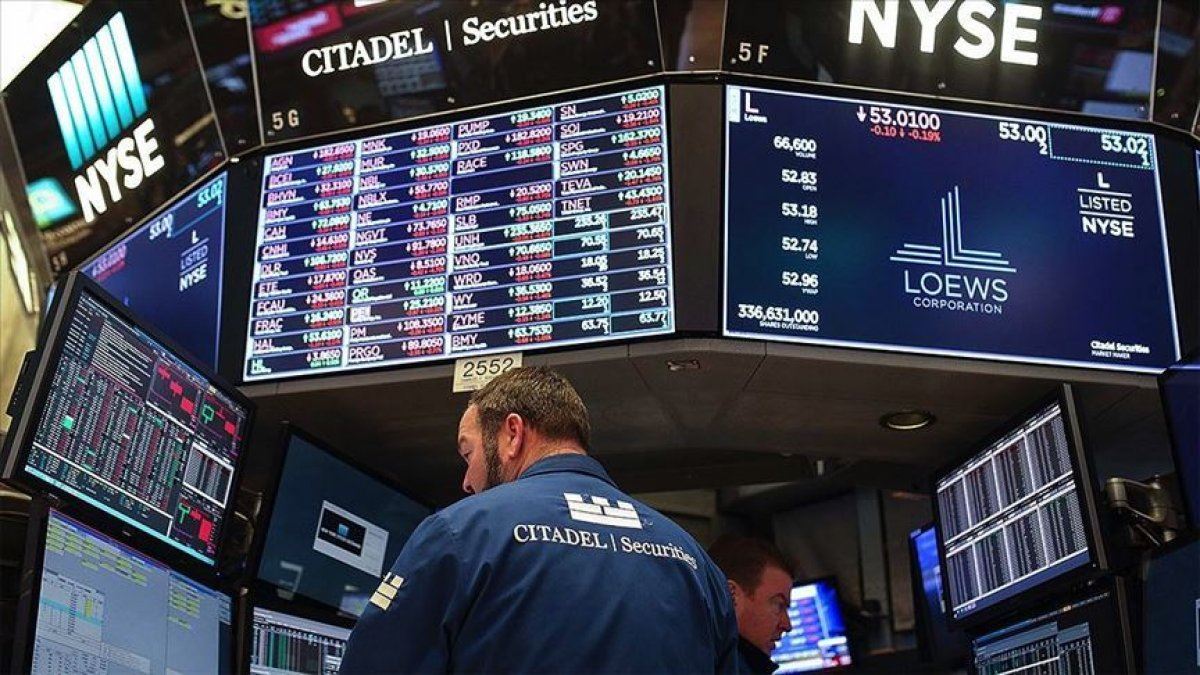Financial results announced by Target on Wednesday, after Walmart in the US, pointed to continued rising cost pressures and weak consumer demand in the retail sector. While the concerns that the purchasing power would deteriorate further due to high inflationary pressures, the concerns that the US Federal Reserve's (Fed)'s aggressive interest rate hike in the coming period would drag the economy into recession remained on the agenda.
On the macroeconomic data side, weekly jobless claims in the USA reached the highest level in 16 weeks with 218,000. Philadelphia Fed Manufacturing Index in the country fell to the lowest level in 2 years with 2.6 in May, while second-hand home sales decreased to 5.61 million in April, bringing its decline to the third month.
Although Fed officials signaled that they will do everything necessary for a "soft landing in the economy", all these developments led to an acceleration in sales in the stock markets and continued interest in safe-haven assets.
Yesterday, the Dow Jones index fell 0.75 percent, the S&P 500 index fell 0.58 percent and the Nasdaq index lost 0.26 percent in the New York stock market. The dollar index is flat today after closing at the lowest level in two weeks with 102.9, decreasing by 0.9 percent compared to the previous closing level yesterday. The 10-year bond yield of the USA, which saw the lowest level in 3 weeks with 2.78 percent yesterday, was balanced at 2.84 percent today.
On the European side, the ongoing uncertainties regarding the Russia-Ukraine war increase the concerns about the weakening regional economies, while inflationary pressures continue to be the main factor reducing the risk appetite of investors. With these developments, sharp decreases were experienced in the European stock markets, led by the retail sector and growth stocks, while the FTSE 100 index in England decreased by 1.82 percent, the DAX 30 index in Germany by 0.90 percent and the CAC 40 index in France by 1.26 percent. While the euro/dollar parity reached the highest level in two weeks by rising above 1.06, the decline in the dollar/Swiss franc parity accelerated after the Swiss Central Bank President Thomas Jordan signaled that they would take action if inflation pressures continued. The pair fell below 0.97 to hit a 3-week low.
On the Asian side, the People's Bank of China (PBoC) lowered the 5-year loan rate from 4.60 percent to 4.45% today. The bank, which maintains the 1-year loan reference interest rate at the level of 3.70 percent, last reduced the interest rate by 5 basis points on January 20. While the bank's interest rate cut above the usual rates came as a surprise, the officials' promises of more measures to support the activities affected by the epidemic positively affected the markets.
On the other hand, according to the data released today, the Consumer Price Index (CPI) in Japan increased by 2.5 percent annually in April, exceeding the target of the country's central bank for the first time in 7 years. The fact that the rise in inflation was led by rising import costs rather than the recovery in domestic demand indicated the continuation of extremely loose monetary support in the country.
With these developments, it was observed that the new day started positively across Asia, while the Shanghai composite index increased by 1.3 percent in China, the Nikkei 225 index in Japan increased by 1.2 percent and the Hang Seng index in Hong Kong increased by 2.2 percent near the closing.
While there were no transactions in the domestic markets due to the 19 May Commemoration of Atatürk, Youth and Sports Day yesterday, the BIST 100 index in Borsa Istanbul closed at 2,393.61 points with a decrease of 0.05 percent on Wednesday. Dollar/TL, on the other hand, is traded at 15,9550 at the opening of the interbank market, after closing the day at 15,8824 with a decrease of 0.4 percent compared to the previous closing level in the international markets yesterday.
Analysts said that developments pointing to the continuation of global inflationary pressures caused more aggressive central banks and growth-oriented concerns to remain on the agenda.
Pointing out that while investors continue to move from risky assets to safe havens, there are also opinions that current concerns are overpriced, and stressed that volatility in the markets may continue until the fear environment subsides.
Stating that the consumer confidence index in the domestic and Eurozone and the Producer Price Index (PPI) in Germany came to the fore on the data agenda today, analysts reported that technically, the level of 2.350 was support in the BIST 100 index, and the level of 2,470 points was resistance.
The data to be followed in the markets today are as follows:
09.00 Germany, April PPI
10.00 Turkey, April Overseas PPI
10.00 Turkey, may consumer confidence index
10.00 Turkey, May financial services confidence index
14.30 Turkey, weekly money and bank statistics
17.00 Euro Zone, consumer confidence index for May









Comments
No comment yet.